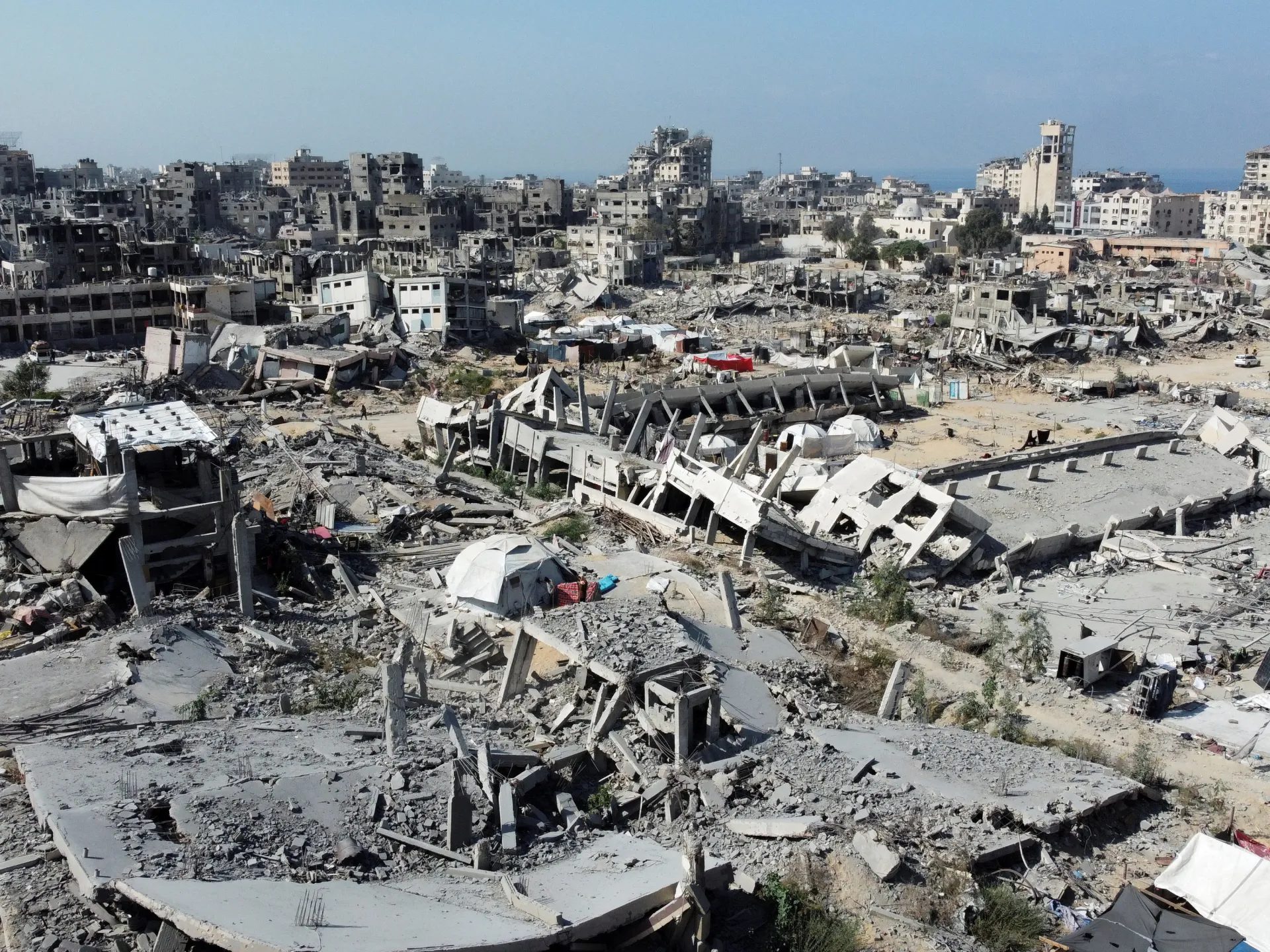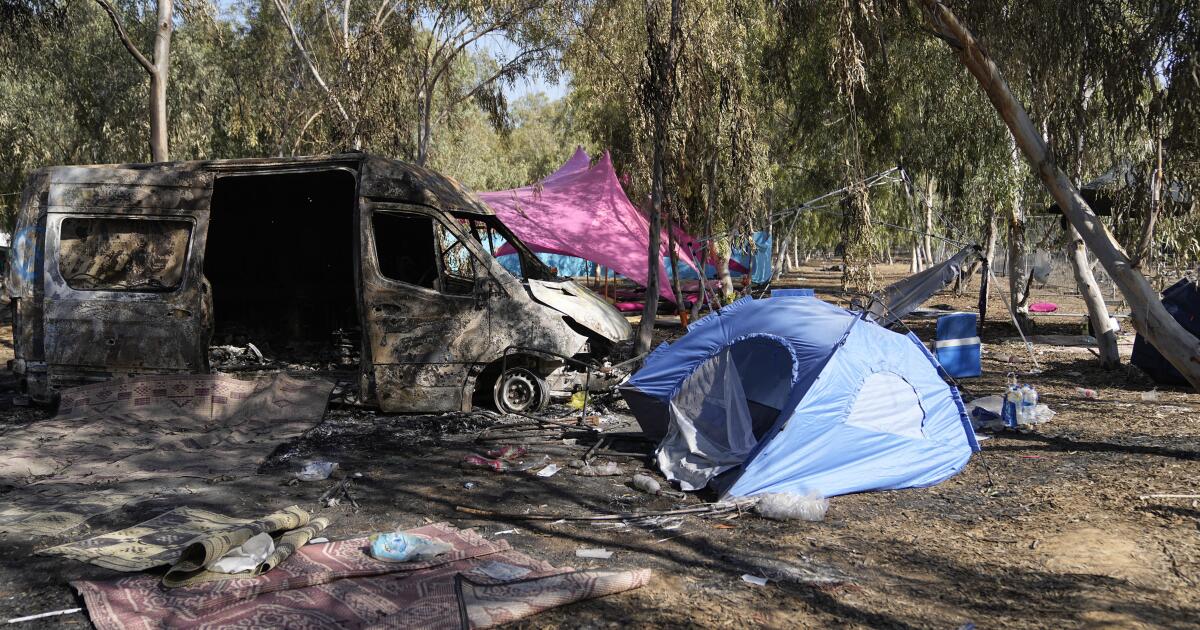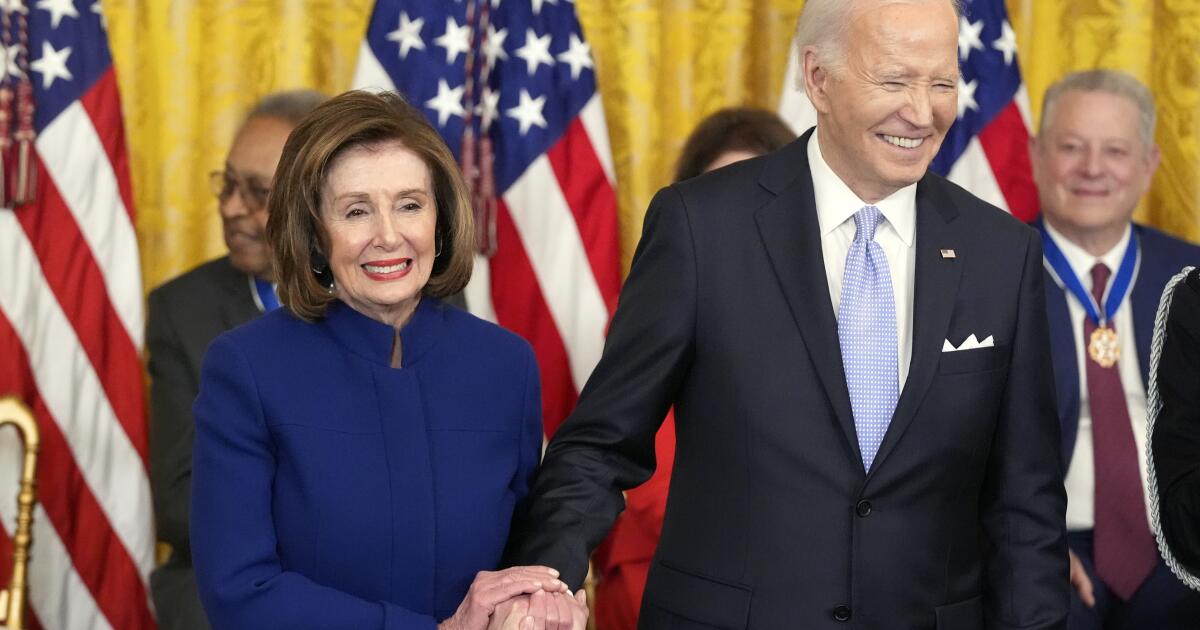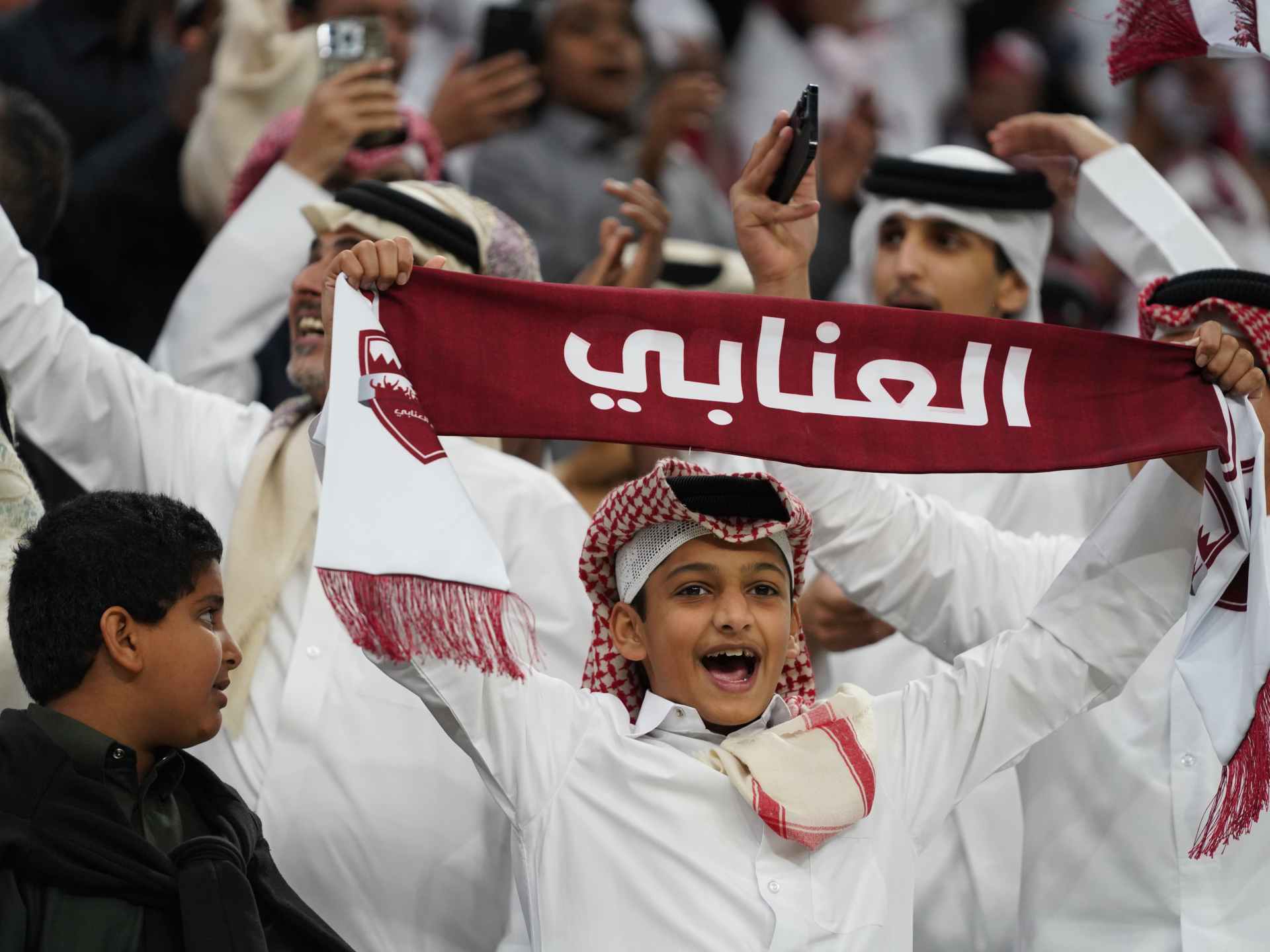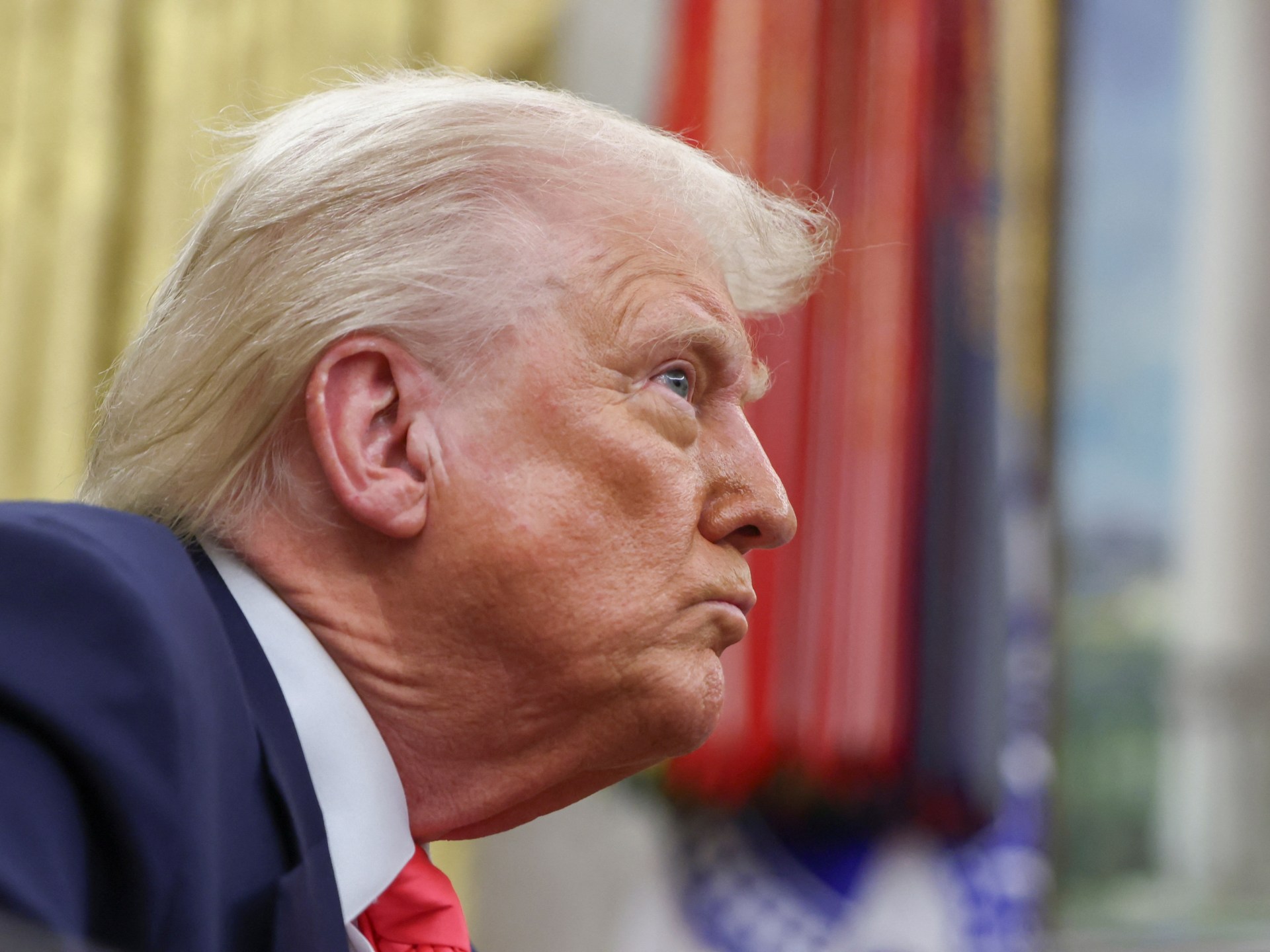Israel's military has launched a wave of airstrikes in southern Gaza as the fragile US-brokered ceasefire aimed at ending the two-year war comes under threat.
The Israeli military said on Sunday it was carrying out a “massive and extensive wave” of attacks against dozens of targets, just hours after attacking the city of Rafah, claiming its troops had been attacked by Hamas fighters in the area.
Recommended stories
list of 4 itemsend of list
An Israeli security official also told news agencies that the transfer of humanitarian aid to Gaza would be stopped “until further notice” after Hamas' alleged ceasefire violation.
Gaza's Civil Defense agency said a series of Israeli airstrikes had killed at least 15 Palestinians since the morning across the war-torn enclave.
The Israeli military said it responded with strikes and artillery fire after Hamas attacked its troops. However, Hamas's armed wing said it adheres to the ceasefire agreement.
“We are not aware of any incidents or clashes taking place in the Rafah area, as they are red zones under occupation control, and contact with our remaining groups there has been cut off since the war resumed in March this year,” the Qassam Brigades, Hamas's armed wing, said in a statement on Sunday.
Al Jazeera's Hani Mahmoud, reporting from Gaza City, said Palestinians are “very concerned” about the sudden escalation.
“Fear and panic dominate the scene among the people of Gaza as the Israeli army launched more than 20 airstrikes. We have been approached by people, including women and children, asking us if the war has returned,” Mahmoud said.
“Some were saying, ‘Now that Israel has taken back the captives, they have killed us again.’ That's the kind of sentiment we're hearing.”
The Israeli strikes in the south came as medical sources at Gaza's Al-Aqsa Hospital told Al Jazeera that five Palestinians had been killed and an unspecified number wounded in an Israeli attack on az-Zawayda in central Gaza.
Three Palestinians were also killed and others wounded in an Israeli strike on the Nuseirat refugee camp, a medical source at al-Awda Hospital told Al Jazeera, while earlier, at least two Palestinians were killed in an Israeli airstrike in northern Gaza, Wafa news agency reported.
“The mood changed” in Israel
Israel's strikes came after the country's Prime Minister Benjamin Netanyahu held consultations with security chiefs and ordered the military to take “strong measures” against any violations of the ceasefire.
Reporting from Amman, Jordan, Al Jazeera's Nour Odeh said Israeli media reports suggested Israel was acting in Rafah to protect its armed proxies in Gaza that it had supported throughout the war, amid fears they were facing retaliation from Hamas since the ceasefire.
“There were reports that perhaps Hamas fighters were trying to attack that militia in Rafah,” he said.
Odeh said that once reports of the clashes in Rafah emerged in Israel, the mood there changed “almost immediately.”
Israel's far-right National Security Minister Itamar Ben-Gvir said in X that he wanted the Israeli army to “fully resume combat in the Gaza Strip with maximum force.” Finance Minister Bezalel Smotrich posted: “War!” And Amichai Chikli, the outspoken Minister of Diaspora Affairs, said: “As long as Hamas exists, there will be war.”
Meanwhile, opposition leader and former member of Israel's security council, Benny Gantz, said all options should remain on the table for Israel, “including a return to military maneuvers.”
Speaking to Al Jazeera, analyst Yossi Mekelberg said the attacks underlined the fragility of the ceasefire agreement.
“We've said all along that this ceasefire is not the complete end to what we've seen over the past two years,” said Mekelberg, a senior consultant with Chatham House's Middle East and North Africa Program. “It is a very fragile ceasefire and it can tilt in one direction or another.”
Hamas rejects US claim
Previously, the US State Department alleged that it had “credible reports” indicating that Hamas would imminently violate the ceasefire agreement with Israel, claims that Hamas rejected.
“This planned attack on Palestinian civilians would constitute a direct and serious violation of the ceasefire agreement and would undermine the important progress made through mediation efforts,” the department said in a statement Saturday.
In response, Hamas issued a statement saying the US accusations were false and “completely align with misleading Israeli propaganda and provide cover for the continuation of the crimes of the occupation and organized aggression” against Palestinians in Gaza.
Hamas accused Israel of supporting armed groups operating in Israeli-controlled areas.
The group also called on Washington to pressure Israel to stop supporting the gangs and “provide them with a safe haven.”
Remains of repatriated captives identified
The strikes in southern Gaza came as Israel identified the remains of two captives freed by Hamas overnight, and the Palestinian group said talks have begun to begin the second phase of ceasefire negotiations.
Under a ceasefire plan brokered by US President Donald Trump, negotiations will include the disarmament of Hamas and the establishment of an internationally backed authority to administer the Gaza Strip.
Netanyahu's office said the bodies belonged to Ronen Engel, a father of three from Kibbutz Nir Oz, and Sonthaya Oakkharasri, a Thai farm worker killed at Kibbutz Be'eri.
The remains of 12 of the 28 bodies of captives still in Gaza have so far been returned to Israel, which is pressuring Hamas to return more.
Hamas says it is committed to the terms of the ceasefire agreement, including handing over the remains of remaining captives, but needs help and heavy machinery to locate and recover bodies trapped under rubble following Israeli attacks that have decimated Gaza.
He also said that the Israeli army's continued control over certain parts of Gaza has slowed the recovery of the bodies.

